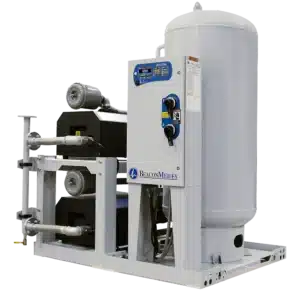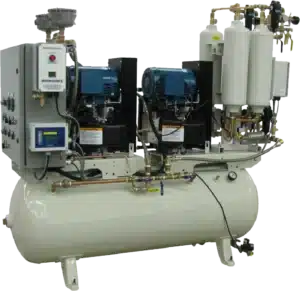Medical air is a specialized form of compressed air that is used in medical facilities to provide respiratory support and to power medical equipment. It is produced by filtering and compressing ambient air to remove impurities and moisture.
Medical air is used in a variety of clinical settings, including hospitals, clinics, and emergency medical services (EMS) vehicles. It is typically used to provide respiratory support to patients who are experiencing difficulty breathing or who require mechanical ventilation. Medical air can also be used to power certain medical devices such as nebulizers, anesthesia machines, and surgical tools.
Medical air is an important component of patient care in medical facilities, and it must meet strict purity and quality standards to ensure patient safety. The production, storage, and
Medical air is often used to support patients who require respiratory assistance, either because they are unable to breathe on their own or because their breathing is compromised in some way. It is commonly used in hospital settings, but can also be used in other medical facilities and during transport by emergency medical services (EMS) providers.
One common use of medical air is to support patients who require mechanical ventilation. This is a process in which a machine called a ventilator is used to deliver oxygen and air to a patient’s lungs. Medical air is often mixed with other gases such as oxygen or nitrous oxide to provide the appropriate blend of gases for the patient’s needs.
Medical air can also be used to deliver medication to the lungs, using devices such as nebulizers or metered dose inhalers (MDIs). These devices convert liquid medication into a fine mist that can be inhaled directly into the lungs.
In addition, medical air can be used to power medical equipment such as surgical tools, anesthesia machines, and medical lasers. This allows healthcare providers to perform a wide range of procedures and surgeries safely and effectively.
Overall, medical air plays an important role in supporting patient care in medical facilities, and is an essential tool for healthcare providers in a variety of settings.


